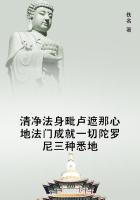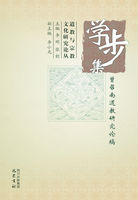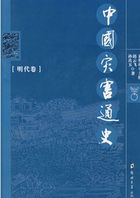(14) The slaughter of all the Midianite women that had prostituted themselves to the lewd Israelites, and the preservation of those that had not been guilty therein; the last of which were no fewer than thirty-two thousand, both here and Numbers 31:15-17, 35, 40, 46, and both by the particular command of God; are highly remarkable, and show that, even in nations otherwise for their wickedness doomed to destruction, the innocent were sometimes particularly and providentially taken care of, and delivered from that destruction; which directly implies, that it was the wickedness of the nations of Canaan, and nothing else, that occasioned their excision.See Genesis 15;16;1 Samuel 15:18, 33; Apost.Constit.B.VIII.ch.12.p.402.In the first of which places, the reason of the delay of the punishment of the Amorites is given, because "their iniquity was not yet full." In the secured, Saul is ordered to go and "destroy the sinners, the Amalekites;" plainly implying that they were therefore to be destroyed, because they were sinners, and not otherwise.In the third, the reason is given why king Agag was not to be spared, viz.because of his former cruelty: "As thy sword hath made the (Hebrew) women childless, so shall thy mother be made childless among women by the Hebrews." In the last place, the apostles, or their amanuensis Clement, gave this reason for the necessity of the coming of Christ, that "men had formerly perverted both the positive law, and that of nature; and had cast out of their mind the memory of the Flood, the burning of Sodom, the plagues of the Egyptians, and the slaughter of the inhabitants of Palestine," as signs of the most amazing impenitence and insensibility, under the punishments of horrid wickedness.
(15) Josephus here, in this one sentence, sums up his notion of Moses's very long and very serious exhortations in the book of Deuteronomy; and his words are so true, and of such importance, that they deserve to be had in constant remembrance.
(16) This law, both here and Exodus 20:25, 26, of not going up to God's altar by ladder-steps, but on an acclivity, seems not to have belonged to the altar of the tabernacle, which was in all but three cubits high, Exodus 27:4; nor to that of Ezekiel, which was expressly to be gone up to by steps, ch.43:17; but rather to occasional altars of any considerable altitude and largeness; as also probably to Solomon's altar, to which it is here applied by Josephus, as well as to that in Zorobabel's and Herod's temple, which were, I think, all ten cubits high.See 2 Chronicles 4:1, and Antiq.B.VIII.ch.3.sect.7.The reason why these temples, and these only, were to have this ascent on an acclivity, and not by steps, is obvious, that before the invention of stairs, such as we now use, decency could not be otherwise provided for in the loose garments which the priests wore, as the law required.See Lamy of the Tabernacle and Temple, p.444.
(17) The hire of public or secret harlots was given to Venus in Syria, as Lucian informs us, p.878; and against some such vile practice of the old idolaters this law seems to have been made.
(18) The Apostolical Constitutions, B.II.ch.26.sect.31, expound this law of Moses, Exodus 22.28, "Thou shalt not revile or blaspheme the gods," or magistrates, which is a much more probable exposition than this of Josephus, of heathen gillis, as here, and against Apion, B.II.ch.3.sect.31.What book of the law was thus publicly read, see the note on Antiq.B.X.ch.5.
sect.5, and 1 Esd.9:8-55.
(19)Whether these phylacteries, and other Jewish memorials of the law here mentioned by Josephus, and by Muses, (besides the fringes on the borders of their garments, Numbers 15:37,) were literally meant by God, I much question.That they have been long observed by the Pharisees and Rabbinical Jews is certain;however, the Karaites, who receive not the unwritten traditions of the elders, but keep close to the written law, with Jerome and Grotius, think they were not literally to be understood; as Bernard and Reland here take notice.Nor indeed do I remember that, either in the ancienter books of the Old Testament, or in the books we call Apocrypha, there are any signs of such literal observations appearing among the Jews, though their real or mystical signification, i.e.the constant remembrance and observation of the laws of God by Moses, be frequently inculcated in all the sacred writings.
(20) Here, as well as elsewhere, sect.38, of his Life, sect.14, and of the War, B.II.ch.20.sect.5, are but seven judges appointed for small cities, instead of twenty-three in the modern Rabidns; which modern Rabbis are always but of very little authority in comparison of our Josephus.















